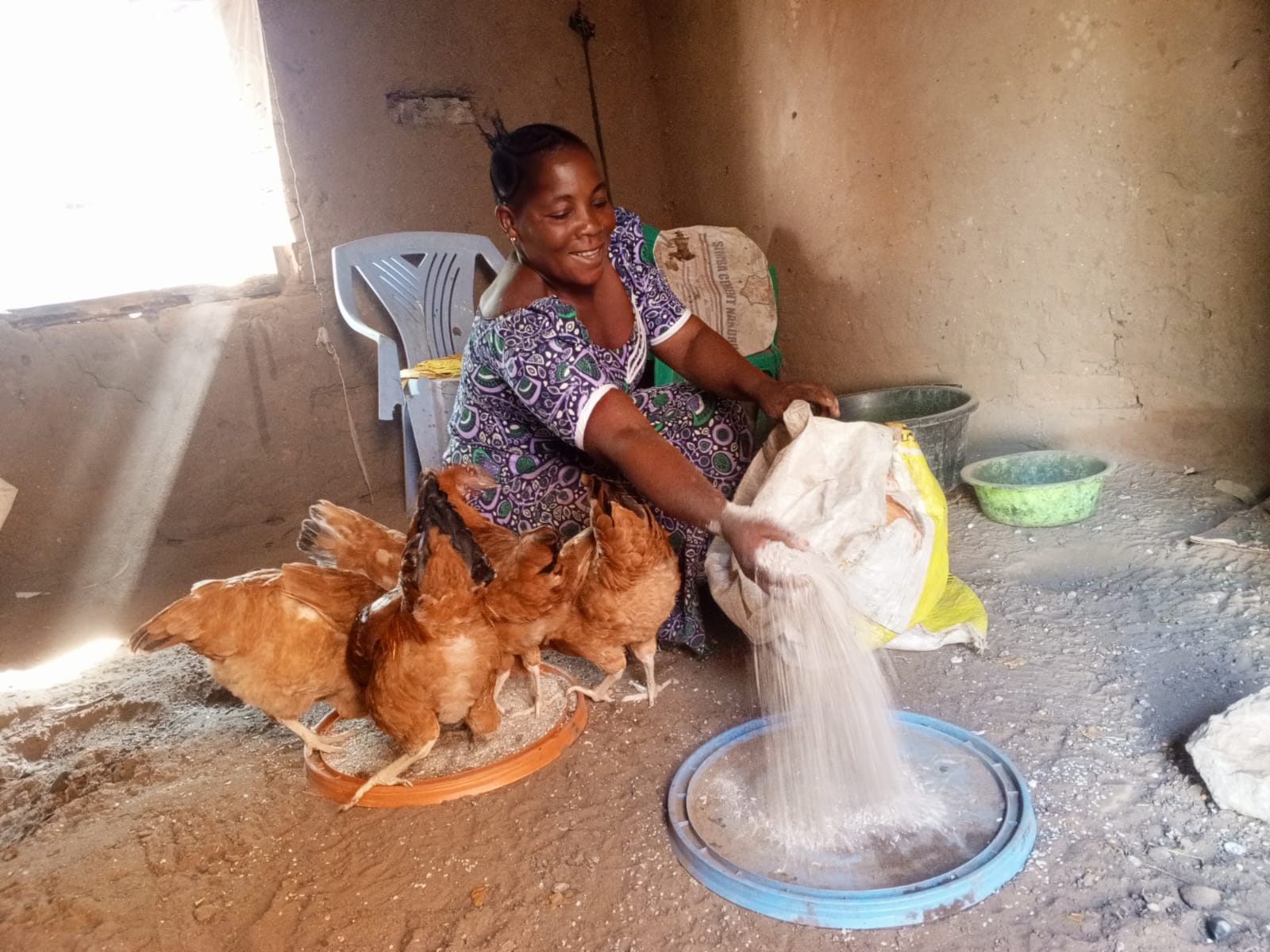Back to basics: Re-centring refugees in humanitarian and development action
DOI:
https://doi.org/10.21153/thl2025art2264Keywords:
refugees, refugee-led organisation, RLO, localisation, sustainable agricultureAbstract
Despite decades of rhetoric around localisation and inclusion, mainstream humanitarian and development systems continue to marginalise refugees, relegating them to passive recipients of aid rather than recognising them as capable leaders and innovators. This article critiques the entrenched architecture of exclusion that defines much of global aid practice, arguing that meaningful reform must begin with re-centring refugees as agents of change. Drawing on recent evidence from refugee-led organisations (RLOs) such as the Vijana Twaweza Community (VTC) in Kenya's Kakuma refugee camp, the article showcases the productivity, contextual intelligence, and transformative potential of refugee-led development, particularly in sustainable agriculture. It highlights how RLOs are already filling critical gaps left by international actors, despite facing legal, financial, and structural barriers. The article explores how scalable, tech-enabled knowledge sharing could support the growth of such initiatives and calls for a fundamental shift in how resources are distributed and how refugees are included. Ultimately, it argues that empowering RLOs is not only a moral imperative but a pragmatic strategy for a more effective and just humanitarian future. The real question is no longer whether refugees can lead, but whether the sector is willing to follow.
Downloads
References
Alrustm, H. and Kallas, G. (2023). The transformative impact of refugee-led organisations on communities. [online] Humanitarian Practice Network. Available at: https://odihpn.org/publication/the-transformative-impact-of-refugee-led-organisations-on-communities/.
Bautista-Chavez, A., Estefanía Castañeda-Pérez, Chan, S. and Mitra, A. (2024). Hierarchy in the Politics of Migration: Revisiting Race, Ethnicity, and Power in the Migration State. International Migration Review, 58(4). doi:https://doi. org/10.1177/01979183241275461.
Carron, D., Alessandra, Do Sul, T., O’Keeffe, P., Ngabirano, M. and Radjabu, A. (2023). The real cost of teaching in a refugee camp: Asking the difficult questions. PROSPECTS. doi:https://doi.org/10.1007/s11125-023-09645-w.
Chiu, B. (2020). Calls For Shifts In Philanthropy Towards Refugees Leadership. Forbes. [online] 1 Oct. Available at: https://www.forbes.com/sites/bonniechiu/2020/10/01/calls-for-shifts-in-philanthropy-towards-refugees-leadership/.
Diab, J.L., Jasiukaitis, S. and El-Zakka, Y. (2024). Refugee voices vs. humanitarian choices: how much can refugee-led organizations redefine power and agency in post-2019 Lebanon? Journal of International Humanitarian Action, 9(1). doi: https://doi.org/10.1186/s41018-024-00151-y.
Easton-Calabria, E. (2023). The under-examined role of refugee-led organisations | Innocenti Global Office of Research and Foresight. [online] www.unicef.org. Available at: https://www.unicef.org/innocenti/stories/under-examined-role-refugee-led-organisations.
Essex-Lettieri, D. and Zahreddine, J. (2024). How to end tokenism and embrace real refugee participation. [online] The New Humanitarian. Available at: https://www.thenewhumanitarian.org/opinion/2024/09/10/how-end-tokenism-and-embrace-real-refugee-participation.
Gercama, I. and Ainsworth, D. (2024). Does localization actually work? We look for evidence. [online] Devex. Available at: https://www.devex.com/news/does-localization-actually-work-we-look-for-evidence-106566 .
Hellen, A.I., Din Ikram, Q. and Perry, J. (2024). Why Aren’t Refugees at the Negotiating Table? - Refugees International. [online] Refugees International. Available at: https://www.refugeesinternational.org/perspectives-and-commentaries/why-arent-refugees-at-the-negotiating-table/
Khoury, R.B. and Scott, E.K.M. (2024). Going local without localization: Power and humanitarian response in the Syrian war. World Development, [online] 174, p.106460. doi:https://doi.org/10.1016/j.worlddev.2023.106460.
Lovey, T., O’Keeffe, P. and Petignat, I. (2021). Basic Medical Training for Refugees via Collaborative Blended Learning: Quasi-Experimental Design. Journal of Medical Internet Research, 23(3), p.e22345. doi: https://doi.org/10.2196/22345.
Luundo, D.M., Amin, S. and O’Keeffe, P. (2025). Between drought and deluge: the fragility of ‘resilience’ in Kakuma Refugee Camp | Humanitarian Practice Network. [online] Humanitarian Practice Network. Available at: https://odihpn.org/publication/between-drought-and-deluge-the-fragility-of-resilience-in-kakuma-refugee-camp/
MacPherson, C. and Sterck, O. (2021). Empowering refugees through cash and agriculture: A regression discontinuity design. Journal of Development Economics, 149, p.102614. doi: https://doi.org/10.1016/j.jdeveco.2020.102614.
O’Keeffe, P. (2025). Vijana Twaweza community chicken-farming training: refugee-led development in Kakuma Refugee Camp | Humanitarian Practice Network. [online] Humanitarian Practice Network. Available at: https://odihpn.org/publication/vijana-twaweza-community-chicken-farming-training-refugee-led-development-in-kakuma-refugee-camp/.
O’Keeffe, P. and Carron, D. (2020). Refugees in camps need agency to fight the pandemic. [online] Times Higher Education (THE). Available at: https://www.timeshighereducation.com/blog/refugees-camps-need-agency-fight-pandemic
O’Keeffe, P. and Luundo, D.M. (2024). Vijana Twaweza Club: Food security via a refugee-led organisation in Kenya. [online] Ennonline.net. Available at: https://www.ennonline.net/fex/73/vijana-twaweza-club-food-security-via-a-refugee-led-organisation-in-kenya.
Opalo, K. (2025). African countries must urgently start the process of ending aid dependency. [online] Africanistperspective. com. Available at: https://www.africanistperspective.com/p/african-countries-must-start-the.
Sher, A., Li, H., ullah, A., Hamid, Y., Nasir, B. and Zhang, J. (2024). Importance of regenerative agriculture: climate, soil health, biodiversity and its socioecological impact. Discover Sustainability, [online] 5(1). doi: https://doi.org/10.1007/s43621-024-00662-z.
Shuayb, M. (2022). Stop referring to people like me as ‘local’. [online] The New Humanitarian. Available at: https://www. thenewhumanitarian.org/opinion/2022/2/8/Localisation-lip-service-fixing-aid-colonial-legacy.
Sturridge, C., Girling-Morris, F., Ismael, M. and Croome, A. (2023a). Excluding refugee-led organisations (RLOs) from the formal refugee response is a lose-lose: Three reasons why RLOs need to be front and centre at this Global Refugee Forum. [online] ODI: Think change. Available at: https://odi.org/en/insights/grf-excluding-rlos-refugees/
Sturridge, C., Girling-Morris, F., Spencer, A., Kara, A. and Chicet, C. (2023b). The failure to fund refugee-led organisations Why the current system is not working, and the potential for change. [online] Available at: https://odi.org/documents/8777/HPG_report_funding_to_RLOs_final.pdf
Tafech, H. (2025). Refugee Leadership: Tools, Challenges, and the Path Forward - Refugees International. [online] Refugees International. Available at: https://www.refugeesinternational.org/reports-briefs/refugee-leadership-tools-challenges-and-the-path-forward/
Tonks, L. (2024). Refugee-Led Organisations: A Pathway to Localised Crisis-Response and Sustained Development - CSRN. [online] CSRN. Available at: https://csrn.org.uk/refugee-led-organisations-a-pathway-to-localised-crisis-response-and-sustained-development/
Vuni, F.J., Iragi, B. and V|idal, P. (2024). Refugee-led organisations: towards community-based accountability mechanisms | Humanitarian Practice Network. [online] Humanitarian Practice Network. Available at: https://odihpn.org/publication/refugee-led-organisations-towards-community-based-accountability-mechanisms/.







